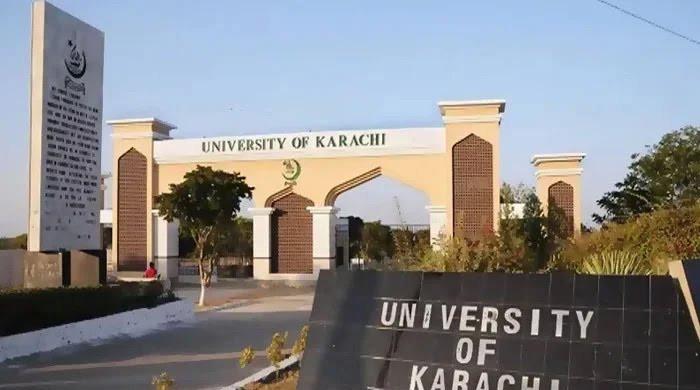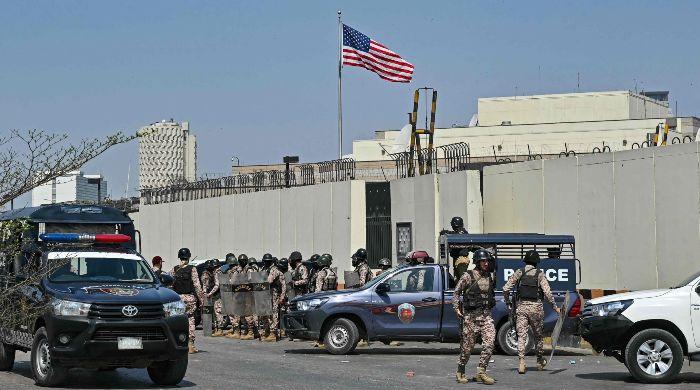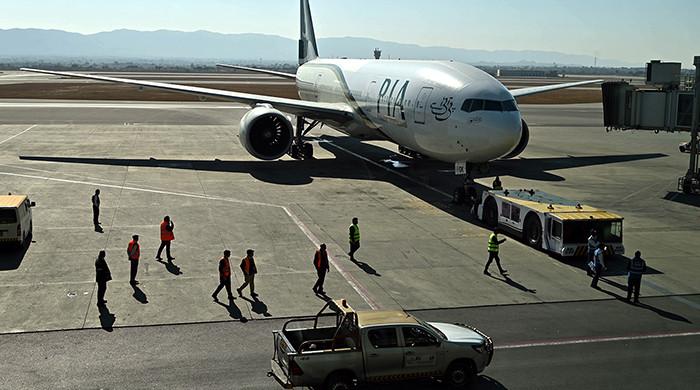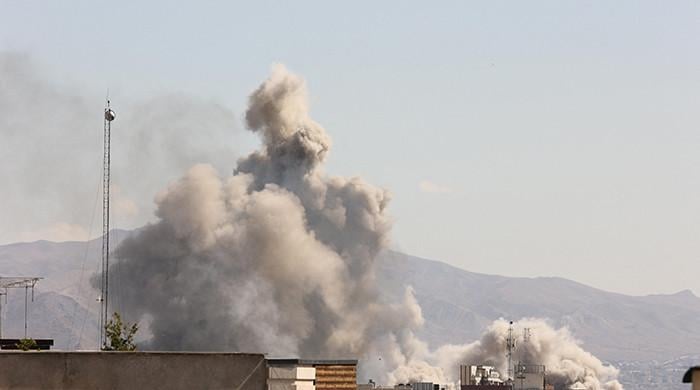Flood relief activities to continue for next two years, says planning minister
Government working on plans to deal with climate catastrophe in future as floods kill over 1,600
September 29, 2022
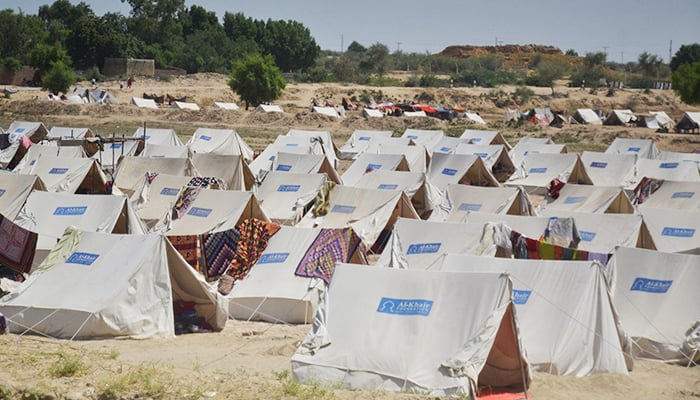
- Working on plans to deal with climate catastrophe in future, Iqbal says.
- Planning minister urges nation to unite and help flood-affected people.
- Cataclysmic floods have killed over 1,600, including 615 children.
ISLAMABAD: Minister for Planning, Development, and Special Initiatives Ahsan Iqbal said Thursday that the relief activities initiated after cataclysmic floods in the country could continue for the next two years.
Devastating floods engulfed large swathes of Pakistan this month, killing more than 1,600 people and devastating the country's infrastructure to cause damages estimated nearly at $30 billion.
In conversation with anchorpersons, Iqbal blamed climate change for the unprecedented rainfall and flooding that have "severely affected" the rural areas.
"Natural disasters are a result of climate change, however, we are coming up with plans to deal with them in future. For now, the government has allocated Rs40 billion for 20 underdeveloped districts."
Civil society organisations — helping in relief efforts from setting up tent cities to providing education in camps — are rendering "valuable services", the planning minister noted.
For their part, the minister noted that the armed forces are actively participating in relief efforts, along with the provincial governments and district administrations.
"The floods have caused wide-scale destruction. The nation will have to unite and help those affected by floods," the planning minister urged.
As many as 1,666 people have been killed in flash floods, including 615 children and 333 women, the country's disaster management agency said on Thursday.
Apart from the lives lost, more than two million people's houses have been destroyed, and over one million livestock — a major source of income for rural households — have been lost in the floods.
Non-governmental organisations are working in flood-affected areas, while aid from the international community is also trickling in gradually, but it is yet to cushion the catastrophe's damage.
The floods have also raised questions on whether Pakistan will be able to pay its debts on time, with the local currency weakening against the dollar and the forex reserves diminishing over time.
In this regard, Prime Minister Shehbaz Sharif and Foreign Minister Bilawal Bhutto-Zardari have sought climate justice to compensate for the destruction as the disaster was climate-induced — and Pakistan produces one of the lowest carbon emissions in the world.




